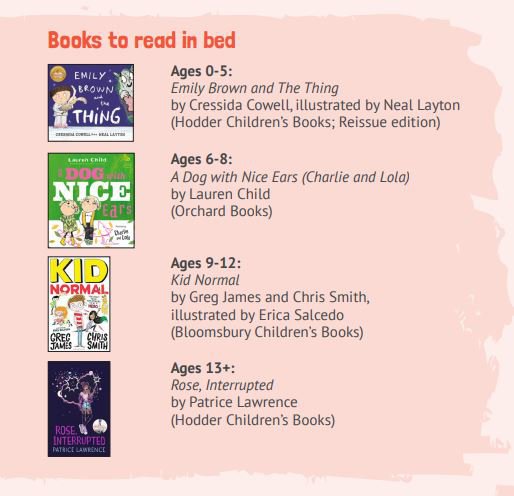In these unprecedented times, it’s never been more important to establish a culture of reading at home as a family. Fiona Evans from the National Literacy Trust explores some of the ways families can support their child’s reading at home, as the charity launches its brand new Family Zone.
Why is it so important to find time to keep up with reading at home?
Reading allows children to discover new worlds, meet new people and learn about the past, while sparking imaginations, stimulating critical thinking and helping children develop empathy. What’s more, we know that children who enjoy reading and read widely are more likely to do better in school and be happier with their lives[1].
In this difficult time, it’s really important that parents and families create time in their daily routines to share books and stories together. Not only will it provide enjoyable moments as a family, but by encouraging children to keep practising their literacy skills at home, it will help them feel confident and prepared to go back to the classroom and ensure they do not fall behind. Reading with your child for as little as 10 minutes a day can make all the difference[2].

How can you involve different family members in supporting your child’s reading?
Some children prefer to read independently, which is a fantastic thing to encourage, but turning this into a shared family activity can be a great way to ensure your child is reading every day.
- Read for 10 minutes together before bed. Reading stories at night makes for a calm bedtime.
- Set your child the task of acting out a story or chapter once they have read it with their siblings or other family members. This will help them to understand and solidify what they have just read – and it’s lots of fun.
- Video chat with grandparents and other family members and read a story together.
- You could establish a weekly book club with other friends and family members with children of a similar age to your child and they can discuss a book they have both read via video chat.
- Build a reading den and take time each day to pop in and get cosy with a book together. Here’s a handy guide to building your very own reading den.

What if my child is reluctant to read?
There are several ways you can engage reluctant readers in stories and books.
- Find something they’re interested in and run with it. For example, if your child is interested in football, why not read over the sports section of the newspapers, research their favourite players and read all about their sporting journey, or find football themed books you can read together.
- Listen to an Audiobook. Our research found that audiobooks are effective at engaging reluctant, struggling and developing readers because they increase children’s access to stories, enable children to experience stories in a ‘cool’ way and are often told by famous actors or celebrities[3]. Check out our top tips for enjoying audiobooks together as a family. Many audio resources are now available for free, for example, Audible has made hundreds of children’s audiobooks available for download and every day at 11am you can listen to Elevenses with David Walliams as he reads one of his World’s Worst Children stories.

Which books should I start with?
There is so much choice out there, it can often feel a bit overwhelming. Here are some themed book lists, broken down by age (from 0 to 11), that you might like to explore with your child from our Words for Life website:

How can I access new books from the confinement of my home?
As well as listening to free audiobooks through Audible, there are several apps you can use to access books and stories at home. Here are three great examples below, and you can find more through our handy guide to literacy apps:
- Libby allows you to borrow ebooks and audiobooks from your local library using your device
- Borrow Box allows you to borrow audiobooks and ebooks for free in the app
- CBeebies Storytime app makes reading fun, with playful and imaginative stories featuring CBeebies characters designed to help support early years reading
Many incredible authors and illustrators are also reading daily stories online for children and families, including Oliver Jeffers, Steve Anthony and Rob Biddulph.
Visit the National Literacy Trust’s brand new Family Zone for more ideas and guidance for simple activities that will engage your children at home, while also benefiting their reading, writing and language development.
This blog was first published on Parentkind
[1] National Literacy Trust (2018) Mental wellbeing, reading and writing
[2] Oxford University Press (2013) Books Beyond Time
[3] National Literacy Trust (2020) Audiobooks and literacy: www.literacytrust.org.uk/audio
